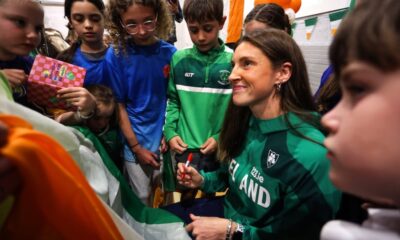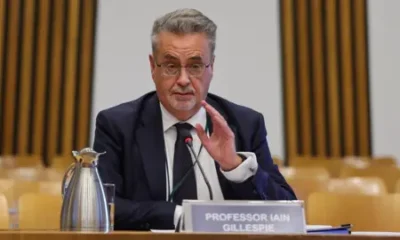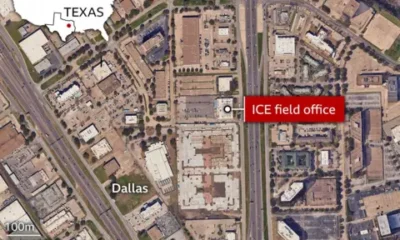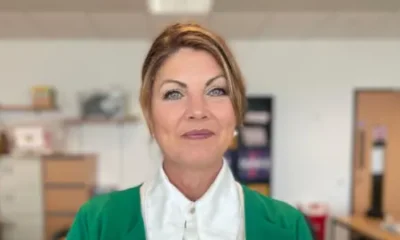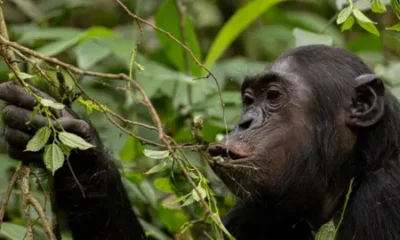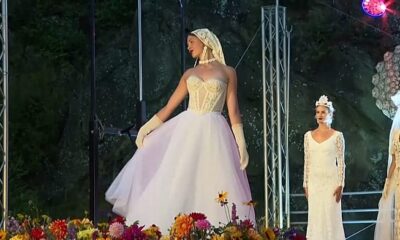
Breaking News
Father urges State to help him get toddler daughter back to Ireland in ‘heart-rending’ case
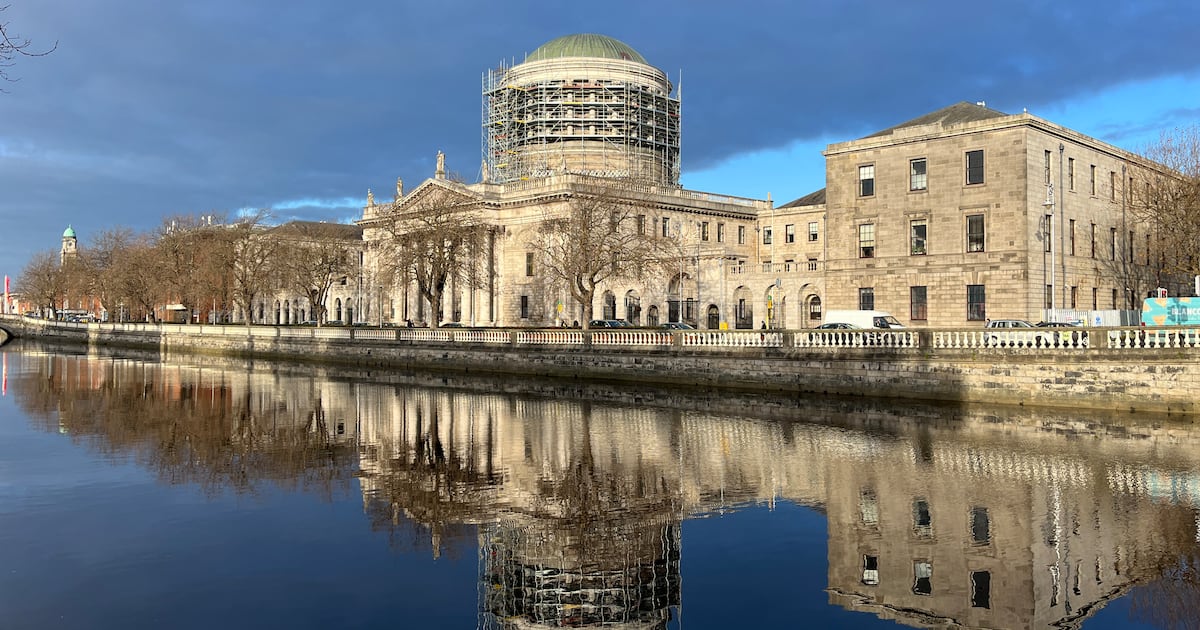
Read more on post .
In what a judge described as a “heart-rending” case, a father wants orders directing the State to take immediate steps for the return to Ireland of his child who he has not seen since early this year.
The toddler was taken by her mother to her native Poland without her father’s consent and remains there after a Polish court directed her return to Ireland.
The parents are in dispute over the mother’s claim the child will receive better treatment in Poland for her medical condition.
On Wednesday, the man told the High Court’s Mr Justice Micheál P O’Higgins, who was dealing with the court’s vacation list, he has not seen his daughter since he saw her in a Polish court last January. He is “the only one fighting for her rights”, he said.
Paul McCarthy SC, for various State defendants, said this is “a human story” and there was no lack of sympathy from the defendants for the predicament of the man and his child.
It is also a legal matter and the man has no cause of action against the State parties, counsel said. The State is “doing all it can” but there were legal and diplomatic limits on what it can do.
Mr Justice O’Higgins said it was a “heart-rending” matter and the court required further materials and legal documents and submissions before deciding how to proceed.
He made directions for exchange of those documents and returned the man’s application for various orders and declarations to October 8th.
He adjourned to the same date the defendants’ application to strike out the man’s proceedings on grounds they disclose no cause of action and are bound to fail.
The judge made orders preventing identification of the parties.
Earlier, he was told that a Polish ombudsman has sought to bring an appeal there concerning the court orders for return of the child.
The man said he wanted orders for the Irish Government to challenge Poland about the failure to return his child to Ireland. He has been left on his own and has “no time for legal gymnastics”, he said.
Breaking News
Kate O’Connor receives hero’s welcome at Dundalk homecoming
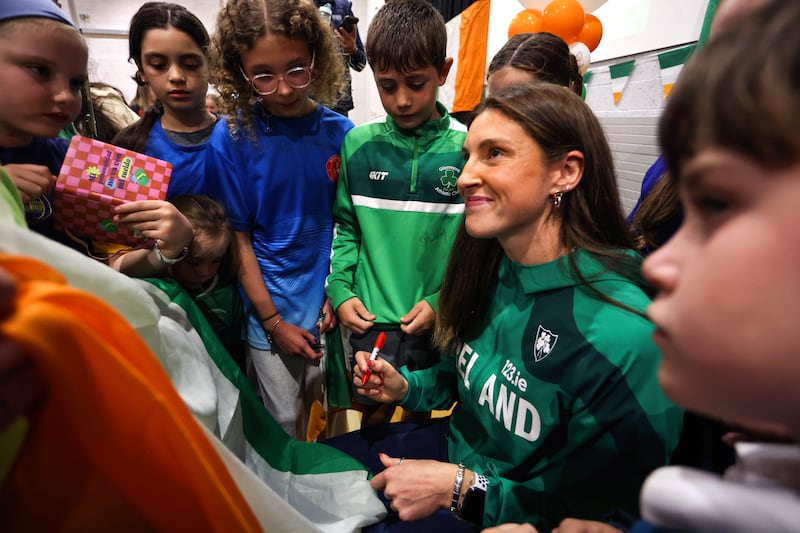
Read more on post.
Ireland’s World Athletics Championships silver medallist Kate O’Connor received a hero’s welcome in her hometown of Dundalk on Wednesday evening.
The World Heptathlon silver medallist strode into the hall of her old school, St Vincent’s Secondary, to the triumphant sound of a brass band.
The large cheering crowd included throngs of children from her athletics club, Dundalk St Gerard’s, and pupils from the school.
Fintan Reilly, deputy president of Athletics Ireland, Paul Cheshire, chairman of St Gerard’s AC, along with Ms O’Connor’s father and coach, Michael, joined her on stage, with St Gerard’s PRO Paul Martin acting as emcee.

Ms O’Connor’s mother, Valerie and her grandmother, Madeleine were also in the crowd.
Ms O’Connor told the wellwishers while she was in Japan she knew there were lots of people excited with what she had achieved, but it was only in coming to events such as this she realised there were “so many people interested in what I’ve done”.
Alluding to the hectic nature of the heptathlon, she said: “For me it was like one event after another. On the Friday night [day one of the heptathlon] I was going to bed at 1am and then had to be up at 6am on the Saturday.”
[ Silver lining for Kate O’Connor and relieved studio pundits despite injury alertOpens in new window ]
The heptathlon consists of seven disciplines across a two-day period, including 100m hurdles, 200m race, 800m race, high jump, long jump and shot-put.
Ms O’Connor, in winning the coveted World Championship silver medal, also set a new Irish record of 6,714 points.
Mr Martin told Ms O’Connor the whole club, town and country were “enormously proud” of her phenomenal achievement and also expressed his appreciation to her for “how big a role model” she was for all the young people.


Ms O’Connor admitted that she felt “a little bit more pressure” in these World Championships and she had to hold her nerve.
“If I was offered one medal this year, I would have jumped on it, but to win four medals at international events ..,” she said.
Ms O’Connor also reflected on the exalted group of Irish woman World athletics medallists that she has joined, namely Sonia O’Sullivan and Derval O’Rourke: “To get messages from these people, these were my idols growing up, but now to be in the same sentence as them …”
Ms O’Connor said that the biggest advice she had for the young children in attendance was “if you have a dream, keep dreaming” and that “you never achieve anything without working very hard”.
One young girl present to welcome her idol home was Niamh Ryan (9) from Carlingford. “I’m very proud of her. I’ve met her at Glenmore Athletics track at Bush Post-primary school,” said Niamh.
Ms O’Connor’s father Michael said she is getting an MRI on her right knee on Thursday as a result of strain she picked up during the heptathlon’s long jump section and they will then put a plan in place.
“She was meant to stay in Japan for a couple of weeks,” he said, but it was decided that the best thing to do was to come home to get the knee assessed.
Mr O’Connor also emphasised the importance of investing in resources including in coaches and that there are “some world class coaches” in Ireland.
“I’ve been so lucky in coaching, I’ve been surrounded by world class coaches. It’s very easy to access information from other people, the hardest thing is to pick up the phone,” he said.
Breaking News
University boss calls for major review of Scottish higher education
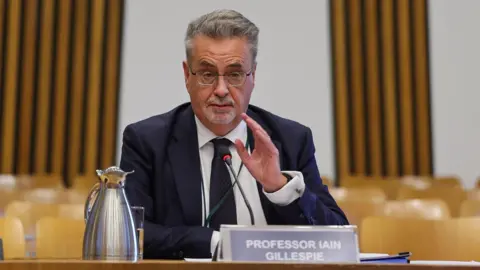
Read more on post.
Douglas FraserBusiness/economy editor, Scotland
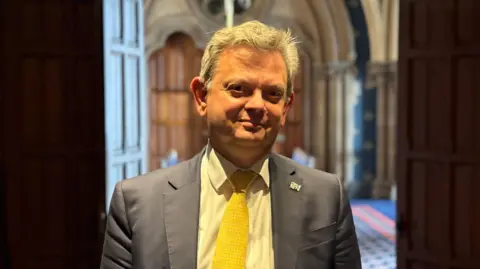 BBC
BBCScotland’s most experienced university principal has called for a review of the funding and shape of higher education, warning against “stumbling from year to year”.
Sir Anton Muscatelli, who retires this month after 16 years as the principal and vice-chancellor of Glasgow University, says universities need a plan which could see major changes in the courses they teach and the research they carry out.
He told the BBC that charging tuition fees to Scottish students is unlikely to secure support at Holyrood so Scotland needs to work out what it wants from higher education and then decide how to pay for it.
His call comes ahead of two crucial reports, due to be published on Friday by the Scottish Funding Council (SFC), about the financial position of universities and of further education colleges.
Both studies have been delayed since early this year – and should reflect the latest financial figures up to June.
This comes as analysis seen by the BBC suggests Scottish government finance for universities and further education colleges has been squeezed in real terms in the past six years by about a fifth.
FE colleges say they are having to turn away qualified applicants and that apprenticeship course are over-subscribed, while universities are limiting the number of places they can offer Scottish students.
In recent years, some have subsidised the cost of educating Scottish students by sharply increasing their recruitment of foreign students but those numbers have started to decline.
Are Scotland’s universities in crisis?
Earlier this year, Dundee University was hit by a severe financial crisis.
A report into the near-collapse of the university said it had continued with increased spending despite a drop in foreign student fee income.
Its principal went before a Scottish Parliament committee and admitted incompetence and senior board members resigned over the mismanagement.
Dundee has so far required a Scottish government bailout of more than £40m.
It is an extreme example but other Scottish universities are also under financial strain.
Edinburgh University is planning cuts of £140m, including job losses.
Its principal, Sir Peter Matheson, has called for a “radical re-wiring” to respond to the funding challenge.
Both institutions and others have seen recent strikes by academic staff to highlight the effect of cuts.
Where do universities get their money from?
Students at Scottish universities with permanent homes in Scotland don’t pay tuition fees.
Instead, the universities get money from the government for a set number of Scottish students each year.
However, they claim that the amount they receive does not cover their costs – and in most cases is not as much as the £9,500 a year that students from the rest of the UK usually pay.
Foreign students in Scotland pay much higher fees – in many cases nearly three times more than UK students.
Most of them come to the UK to do post-graduate Masters degree courses.
This has been an area that has provided a welcome source of funding in recent years but it has fallen away sharply for several reasons, including new UK immigration rules and competition from other countries.
There is no sign of Holyrood ministers or their opponents moving to end ‘free tuition’ for Scottish students, so they need to find other ways of tackling their financial problems.
Do universities get enough money for Scottish students?
The BBC has had access to a new study carried out by David Bell, a professor of economics at Stirling University and expert in public finance.
The study, written for the Royal Society of Edinburgh, details how funding per Scottish university student has fallen over the past five years due to the effect of inflation.
In real terms, the funding shrunk by 22% between 2019-20 and 2023-24, Prof Bell says.
The academic also used publicly available data to show that the fees universities receive fall far short of what they estimate are the costs of educating students.
For instance, in modern languages, the £7,421 annual funding per student is half of what they say is required.
In dentistry, the Scottish government last year paid £19,580 per student.
This is reckoned to be at least £9,000 short of the cost to universities.
The funding for veterinary studies, law, social work, media studies, drama, architecture, planning, anatomy, chemistry, mineral engineering, philosophy and religion would have to be increased by at least 70% to reach the actual cost of educating the average student, Prof Bell says.
Universities also say their research funding, from governments and other sources, fails to cover costs of the overheads they have in facilities.
Are universities relying too much on foreign students?
The number of foreign students at Scottish universities has nearly doubled since 2006-07, when it was 24,200.
The figure reached a peak of 47,700 in 2022-23 before falling back.
Prof Bell’s report details the ways in which the money from overseas students is threatened by changes to immigration requirements.
There are new rules that bar students from bringing their families, as well as a reduction in the time foreign nationals are allowed to work in the UK after graduating.
Some universities are much more exposed than others to volatile foreign student income.
The University of the West of Scotland and Glasgow Caledonian have three quarters of the places on their taught post-grad courses filled by non-UK students.
Older universities such as Glasgow and Edinburgh have many more such students, and more than half of whom are from overseas.
What about Scottish students?
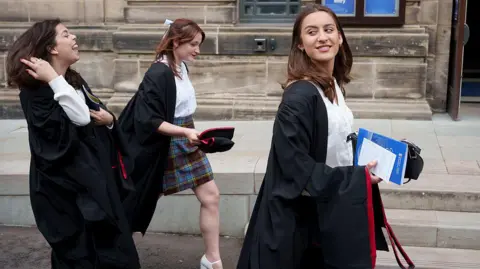 Getty Images
Getty ImagesThe number of places for Scottish students doing their first degree is capped in each university, due to constraints in Scottish government funding.
But there is no limit to the number of places that can be taken by students from the rest of the UK.
They pay the same level of annual tuition fees that they would pay in the rest of the UK.
For the new academic year, that is £9,535, a rise of of 3.1%.
Universities across the UK say this amount has not increased by very much for more than a decade and claim that it also falls short of the actual cost of educating students.
Universities such as Edinburgh and St Andrews have almost as many students from England, Wales and Northern Ireland as they do from Scotland, with roughly a third from each.
Glasgow, by contrast, is 66% Scottish and 15% are from the rest of the UK.
For newer universities, with less of a reputation and prestige, income from the rest of the UK students is more limited.
At Glasgow Caledonian and the University of the Highlands and Islands, the Scottish share is more than 95%.
Do graduates still earn more?
One effect of the Scottish government providing tuition fees for students from Scotland is that graduates themselves leave university with much less debt.
The study cites research that indicates the average Scot graduated in 2023 with debt of £15,430, while the figure for the rest of the UK was £44,940.
Prof Bell’s research gives extensive detail on earnings five years after they graduate.
His figures, based on the 2021-22 tax year, vary widely.
They show a computing graduate from St Andrews was earning an average £77,000, three times as much as one from the University of the West of Scotland.
The lowest pay was for a typical graduate in art and design from the University of the Highlands and Islands, on £15,300.
Other high-earning graduates were in medicine, dentistry and economics.
Among lower earners were those with degrees in media, sociology and performing arts.
The report says that the annual earnings of those with qualifications in health-related and STEM subjects tend to exceed the Scottish average, while those with arts qualifications tend to earn less.
What does Scotland need?
Prof Bell points out that funding is mainly allocated to universities based on the previous year’s funds.
He argues that this gives little scope for innovation and change.
Sir Anton Muscatelli also talks about the case for universities becoming more different from each other.
The Glasgow University principal says there will be a need for more of them to share resources and show they are operating efficiently, with mergers being an option.
Looking to next year’s Holyrood election, he says politicians need to acknowledge that the education sector is going to be crucial to the success of the Scottish economy.
He said: “It really is imperative that we don’t stumble from year to year [but] think about how this is going to be shaped or resourced.
“We need a strategic plan as a country, which is why I suspect after 2026, there will need to be a look at the shape and size of the Scottish [university] sector.
“I hope this is done in a rational way. I strongly believe in a publicly-funded sector, I hope that can be achieved, but let’s start with the question: what sector does Scotland need?”
Breaking News
Pupil ‘guinea pig’ concern as 15 new-look GCSEs begin
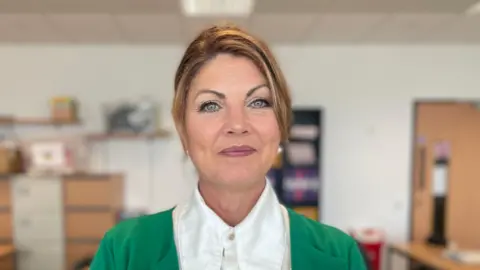
Read more on post.
Bethan LewisWales family and education correspondent
A head teacher has expressed concerns for the “guinea pig year group” who are the first to study 15 new-look GCSEs in Wales.
Year 10 students started studying the new courses earlier this month as part of the rollout of the Curriculum for Wales, with more new qualifications set to be introduced over the next two years.
The major changes to qualifications and courses have been described as a “gamble” which pose “clear risks” by education experts.
The WJEC exam board, which has developed the new GCSEs, said details were available to schools a year in advance and there were subject officers on hand to offer support.
Helen Jones, head teacher at Maesteg School in Bridgend county, said: “I think change is good. I think we’re well overdue curriculum reform.
“However, the challenges on the teaching profession in upskilling themselves to be able to deliver the new curriculum in time for examination is a real challenge.
“I would hate to think that any cohort of young people lost out or were sacrificial lambs because of this new qualifications.
“We’ll do our very, very best obviously, but it’s very unpleasant to be the guinea pig year group.”
What’s changed?
- English literature and language have merged into a single qualification
- Welsh literature and language have also merged into a single qualification, which is now known as Cymraeg
- Film and digital media, and dance, are some of the new qualifications
- Overall, there will be less emphasis on exams and more assessments throughout the courses
Last week Qualifications Wales paused the most controversial part of the original shake-up plans, which was to scrap separate science GCSEs in biology, chemistry and physics from September 2026.
It said those qualifications would still be offered until at least 2031 alongside new combined sciences qualifications, saying there was still debate about the best approach.
The decision to pause the changes to science was welcomed by Ms Jones, who said science teachers across the country would be relieved.
But she said there was “frustration” at the last-minute change and that it was “further evidence of lack of clarity and clear direction”.
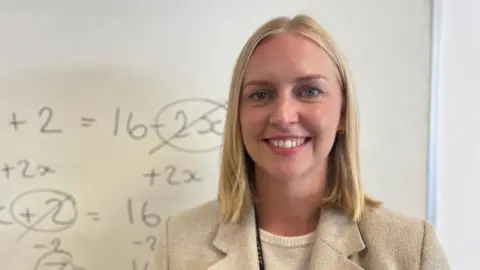
While Ms Jones welcomed reform to the curriculum, she expressed concerns about the volume of changes schools were having to manage, with more new GCSEs coming in 2026 and vocational VCSEs and other qualifications from 2027.
More assessments throughout the courses would also increase teachers’ workload, she added.
“My teachers are going to need regular support and intervention and a go-to person to seek advice and guidance,” she said.
In maths, separate numeracy and mathematics qualifications are now merged in one GCSE – a “positive” change, according to Liz John, head of department at Maesteg School.
But she said the unknown was “scary”, and while giving schools a lot of flexibility to decide how they teach subjects was good, there were risks when it came to exams.
“We’re always doing the best by our pupils and we’re going with what we think is best but with the limited example material – there won’t be any past papers for example… we’re just really hoping that we get it right,” said Ms John.
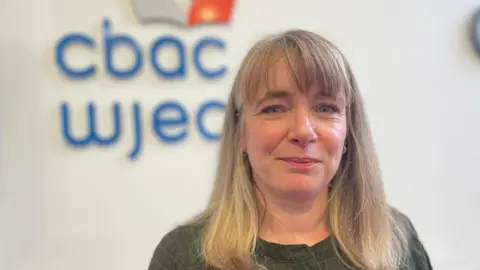
The WJEC exam board said details and sample assessment materials had been available to schools one year in advance of first teaching them and there were subject officers on hand to offer support.
There had also been many training events for teachers to help them prepare, Delyth Jones, assistant director at the WJEC, said.
“Obviously with any big change there are challenges involved for the profession in getting ready, but we’re doing what we can to support them,” she said.
Fears for the first pupils going through the new qualifications was a “natural concern”, she said.
“It’s something that we discuss with the regulator to make sure that those learners are protected in that first year.”
But the author of a critical Institute for Fiscal Studies report on education in Wales said more coursework could widen inequalities because it tended to favour children from more advantaged backgrounds.
Luke Sibieta warned it was also vulnerable to the “widespread and growing use of generative AI”.
“The new GCSEs in Wales are a bit of a gamble, with some very clear risks,” he said.
He welcomed the decision to maintain triple science, when the reason to get rid of it was “never very clear at all”.
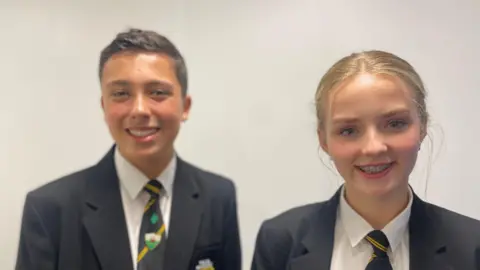
Mali and Thomas, both 14, are among the first to start the revamped GCSEs, including taking a merged English language and literature qualification.
Mali said she was pleased there was some more coursework for pupils who may “struggle with exams and struggle with the pressure”.
“They’re actually giving people the opportunity to have time to do it,” she said, “rather than two hours, get it done in an exam you’ve got to revise for, because that’s just not some people’s forte”.
“I don’t mind” exams, said Thomas, but “sometimes I feel like the coursework is a bit better because it’s such low pressure – it keeps the stress off a lot”.
As a parent with children in both Year 11 and Year 10, Sian John’s family bridges the old and new systems.
She works in Maesteg School and said the teachers were doing all they could to support the pupils.
Ms John had some reservations about the greater emphasis on coursework in some subjects, but she acknowledged it could be helpful for students who struggled with exam pressure.
“On the other hand my children are very sporty,” she said.
“We do a lot of extracurricular activities outside of school so I do worry how the balance is going to affect them with all the deadlines that they’re going to have to meet.”
“It’s fear of the unknown, isn’t it? We just don’t know until we’ve gone through that first full year,” she added.
Education Secretary Lynne Neagle said the government had taken steps to ensure schools were well prepared.
She said extra funding to Adnodd, which oversees resources, and the WJEC would continue for the next wave of new GCSEs being introduced in September 2026.
-
Culture2 days ago
Taylor Swift’s new cinema outing generates more than €12million in just 24 hours
-
Politics2 days ago
European Parliament snubs Orbán with vote to shield Italian MEP from Hungarian arrest
-
Culture1 day ago
Milan Fashion Week 2025: Unmissable shows and Giorgio Armani in mind
-
Opinion2 days ago
AI Is Pointless If It Doesn’t Boost Productivity
-
Culture2 days ago
Marvel stars Mark Ruffalo and Pedro Pascal stand up for Jimmy Kimmel as Disney boycott intensifies
-
Culture1 day ago
Traitors Ireland finale: A tense and thrilling conclusion to a spectacular first season
-
Environment1 week ago
Chimps drinking a lager a day in ripe fruit, study finds
-
Culture2 days ago
From Koniaków to Paris: how traditional Polish crocheting is captivating high fashion


